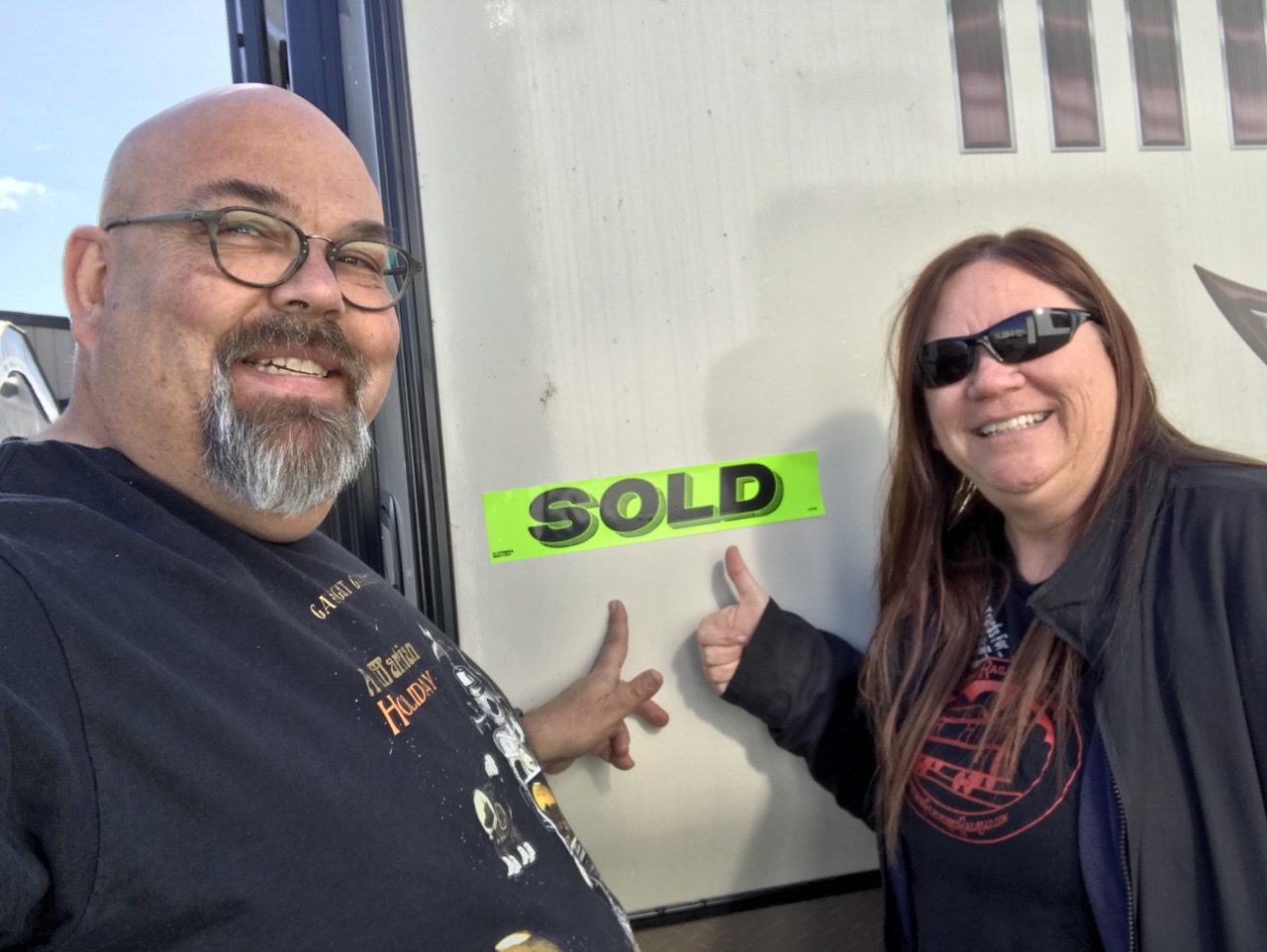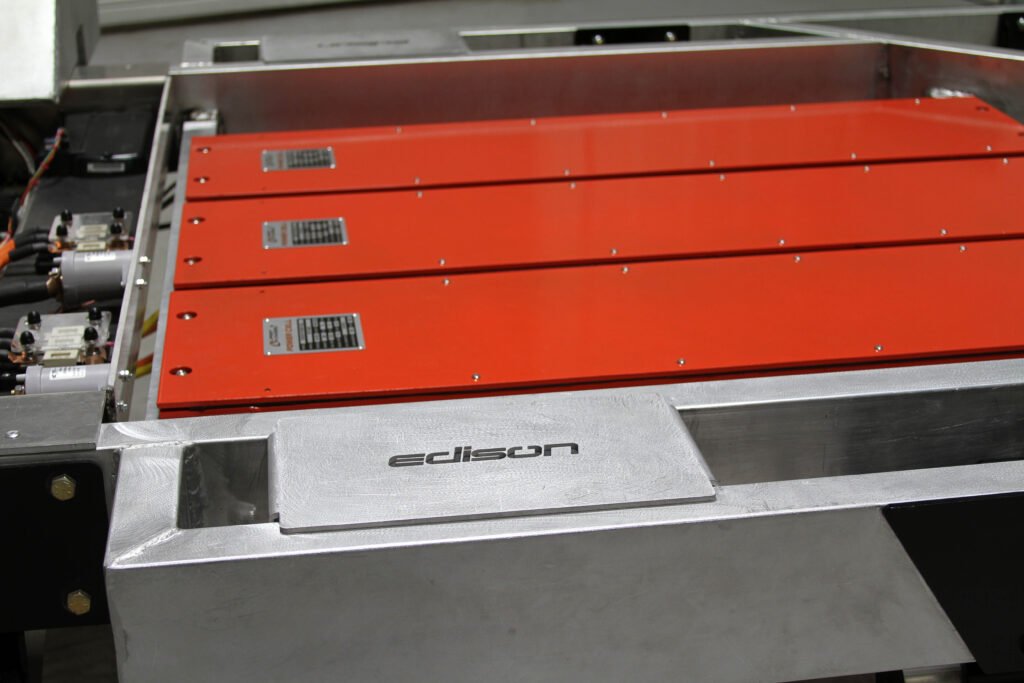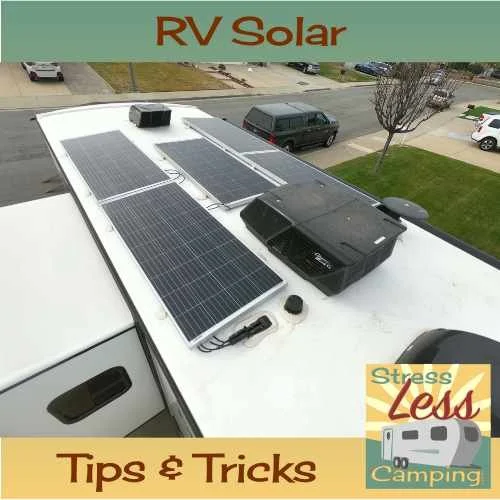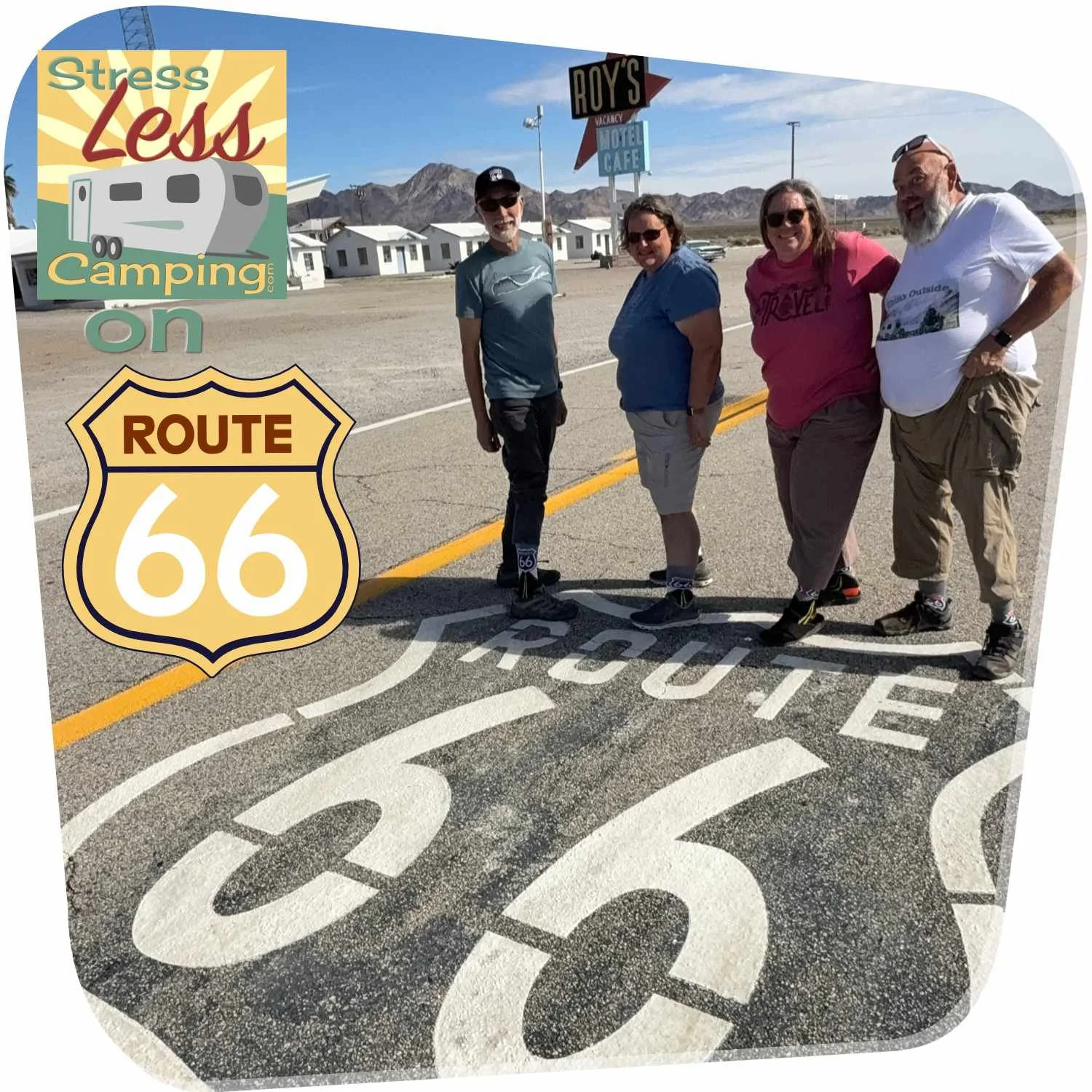The tech of tomorrow - the Lippert Edison project
RV review: Lippert Edison RV prototype
Today’s RV review isn’t of an RV at all, but the promise of some interesting RV technology. That technology comes in the form of the Lippert Edison project. Lippert pulled back the curtain on this in January to give RV manufacturers, and geeks like me who follow the industry, a chance to look at what may be in a campground as soon as next year.
John Rhymer, Lippert’s Vice President of Innovation and Advanced Research and Development, shows some of the remote maneuverability of the Edison chassis.
What is the Lippert Edison chassis?
Lippert makes the majority of chassis that are the foundation on which your trailer is built. From travel trailers to fifth wheels, there’s a high likelihood that it’s sitting on a Lippert chassis.
Check out our video of a Lippert RV chassis factory here.
The Edison chassis is a complete departure from much of what the company builds today. But they also have a secret weapon in the form of John Rhymer, Lippert’s Vice President of Innovation and Advanced Research and Development.
Essentially the Edison chassis has a number of very unique features that make it a rather revolutionary platform:
Electric drive motors that can be used to overcome the losses inherent in pulling an towable RV.
These drive motors can also be used in regenerative braking allowing the trailer to put power back in the built-in battery system on deceleration.
Large battery mounted between the wheels and inside the frame rails of the chassis.
Solar charge controller and other technologies built into the chassis, also mounted between the frame rails
Fully independent suspension
Combined aluminum and steel build
What does this mean?
Having a chassis like this under an RV means that the chassis operates under its own power. This would result in the chassis completely overcoming the losses inherent in towing. So if you towed with your existing tow vehicle, you would have little or no loss of fuel mileage.
If you towed with an electric vehicle, you would have little or no loss of range.
Intelligence in the trailer would allow it to essentially operate under its own power while you’re on your way to the campground. This doesn’t mean it’s driving by itself, it’s still a trailer, but the trailer will use the drive mechanism to overcome the losses of aerodynamics and weight.
Since you have a drive mechanism; however, you may be able to use this at low speeds to maneuver the trailer into a spot. In other words, no more backing the trailer in. You could detach it from the tow vehicle and use a remote to back it into a spot.
Lippert CEO Jason Lippert and John Rhymer, Lippert’s Vice President of Innovation and Advanced Research and Development
More power pluses
The other nice thing of having a very large battery pack under the floor of your trailer could include the fact that you use this energy to power the camping features in the trailer. So this large battery could operate the AC, refrigerator and all of those things.
You would be crazy not to assume that there would be a decent solar system on the roof of this vehicle which would also help overcome the losses of either towing or just using the battery when boondocking.
If you are in an RV park it’s safe to assume that this would be hooked to a 50 amp service. A larger battery like what has been bandied about in a trailer like this would likely take about 7-8 hours to recharge. But that means you could pull in in the evening, plug in to a 50 amp shore power pedestal, and be ready to roll the next day.
The advanced battery pack in the Lippert Edison project. The battery pack sits between the frame rails taking up space that might be wasted in a more conventional design.
Challenges of EVs
Since Ford introduced it’s all-electric pickup a number of YouTubers have posted videos showing that that vehicle isn’t ready for towing RVs. Yet.
Yes it does have the ability to actually tow a trailer without issue. In fact, aspects of electric vehicles are ideal for towing since they develop power from a dead stop much like a steam engine. Gas and diesel engines may eventually develop a lot of torque, but not from the get-go like electric vehicles can.
However petroleum-based liquid fuels have a tremendous amount of energy. Mike Sokol indicated that a 20 pound bottle of propane has the equivalent energy of about 100 standard RV lithium batteries.
So towing with an EV has challenges aplenty including the fact that towing consumes a huge amount of energy. An electric truck that claims to have 350 miles of range when unloaded may only have 100 - or fewer - miles of range when towing a travel trailer.
Also, charging stations are almost universally created such that you can’t just pull up and charge a vehicle when there’s a trailer attached. That means disconnecting the trailer and then charging. And then going another 100 miles and doing it all over again. No thank you.
Towing a travel trailer
Towing a travel trailer is different than something like a boat or flatbed trailer. Of course there’s the weight of the trailer to consider.
But aerodynamics are the real issue. RV makers build big boxes that we can stand up in and then put all sorts of things on the roofs of those boxes. The result is that much of the power - aka much of the fuel in a normal towing situation - is consumed simply overcoming the terrible aerodynamic drag that a towable RV represents.
If you’ve towed an RV you’ve experienced this. Our own Ram 1500 truck can get up to 23 miles per gallon when empty, even at a cruising speed of 70 miles per hour. Hook a travel trailer up and we get between nine and 11 miles per gallon. And that’s at a cruising speed of about 62 miles per hour, which seems to be the ideal situation for how our truck is geared.
Opportunity is knocking
I had the pleasure of speaking with Lippert on this. A lot of what is being worked on is confidential at this time, but there are some things we can think about. Considering that you have drive motors on a trailer it might also be possible to use intelligence to do things like sway control, or braking assist.
In fact the same team at Lippert that is working on this is also the one that developed anti-lock brakes for travel trailers and fifth wheels which is currently being rolled out.
This kind of intelligence and power in a towable RV can have dramatic capabilities. For example, imagine if the trailer is able to overcome handling issues inherent in travel trailers and your drive with the trailer attached is as stress free as it would be without the trailer. There is a lot of promise here.
But I was also impressed just with the thinking that is going into this platform.
Remaining challenges
There are still some challenges inherent in all of this. While the trailer could be charged overnight while you’re camping, what if you are towing with an electric vehicle?
Campgrounds are currently wrestling with that concept. Remember that many campgrounds are in remote areas and the amount of power they are able to get off the grid is already at whatever the local capacity is. So they may not be able to add charging infrastructure to their location, even if they want to.
There are also campground owners who just don’t want to add more charging infrastructure. Whether that be personal preference of the ownership or just a lack of money to add this, it’s not just an automatic thing to consider that there will be more charging stations in the near future.
Though, of course, if you tow the electric trailer with a traditional tow vehicle, then that’s not a concern right now.
Also, this ain’t gunna be cheap. That much power and technology plus advanced building materials mean this will be pricey. Consider that the new Palomino Pause trailer, which uses a lot of advanced materials, carries an MSRP of around $140,000.
Promise
Still, the fact that two companies are working on something like this shows the direction of the RV space. I don’t know how soon electric motorhomes will become a reality but self-powered trailers look to be on the immediate horizon.
While yesterday’s Airstream eStream is a complete concept the Lippert Edison project is a chassis only. But the technology, and promise, of this chassis means that RV builders can create trailers that take advantage of the features and add their own style, much like a standard Lippert trailer chassis.
While the buzz about these is how they will return the range of electric tow vehicles to whatever the manufacturer has promised, I don’t want to discount the fact that this will also make it possible to get the same fuel mileage on an internal combustion engine that you do when you aren’t towing. With the price of fuel nowadays, that’s not a bad thing.
Plus these will also be great for boondocking with all that on-board power and, potentially, you could even power your house in the event of a blackout with this much battery reserve. Stay tuned, you know I’ll be on top of new developments.
I also welcome your comments below or on the StressLess Camping Podcast Facebook Group.
More RV reviews
We have more RV reviews that you can see including specific categories for your reference.
Our complete collection of travel trailer reviews.
Our complete collection of fifth wheel RV reviews.
Our complete collection overlanding RV reviews.
Our complete collection of motorhomes and motorized RV reviews.
Our complete collection of toy hauler RV reviews.
Our complete collection of bunkhouse RV reviews.
RV Shopping Tips
If you’re shopping for an RV we have some great resources for you.
Our complete guide with Tips for buying and selling an RV
Planning on purchasing a towable RV? Visit our RV towing guide first.
Is the mattress in your RV terrible? Check out the GhostBed RV Mattress - we love ours.
Visit an RV show
Want to check out RVs for yourself in person? We have a complete list of RV shows across the US.



























